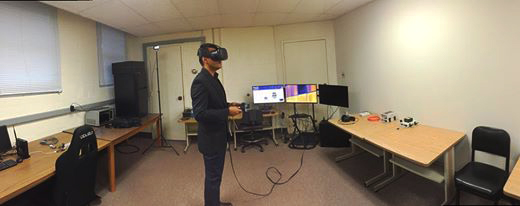UMBC researchers collaborate with Army Research Laboratory to understand human variability

UMBC’s Mobile Pervasive and Sensor Systems Laboratory is collaborating with researchers at the Army Research Laboratory as part of their Center For Adaptive Soldier Technologies (CAST) laboratory. The UMBC group, led by Prof. Nilanjan Banerjee, is funded to work on the Human Variablility Project. The ARL described and motivates the project as follows.
“While it is understood that significant behavioral and performance variability within Soldiers exists, there is a clear knowledge gap with respect to quantifying and predicting the degree and dynamics of this variability. We posit that this critical scientific gap that has led to inflexible systems designed to mitigate against human variability by simplifying system operations and interfaces to be usable by operators performing at below-average levels. Alternatively, by understanding and predicting human variability across multiple time scales, we will enable adaptive system designs that are dynamic and capable of eliciting the full potential of the humans with which they interact.”
As part of this project, UMBC researchers are developing novel sensors and virtual reality environments to collect human behavioral and physiology data to study the variability of human states in immersive environments.
The post UMBC researchers collaborate with Army Research Laboratory to understand human variability appeared first on Department of Computer Science and Electrical Engineering.
Posted: December 9, 2016, 11:39 AM